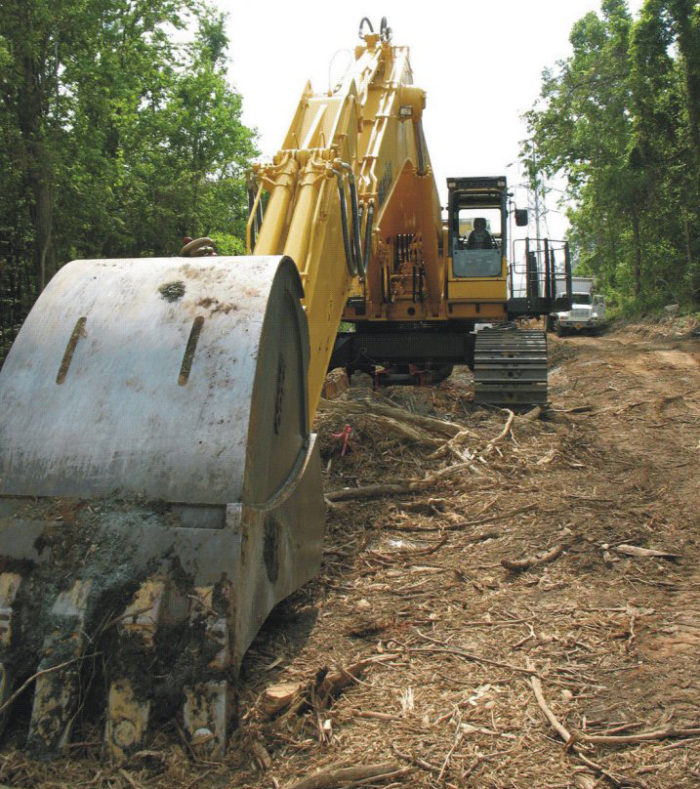
Image Credit: City of Greensboro, NC
Articles on green construction, including those published on the Green Building Advisor website, contain information on a wide range of topics, including material choices, indoor air quality, landscaping, and the VOC content of paint. This wide array of information can convey a false impression — namely, that the covered topics are equally important.
If you’re building a new house, most of these topics turn out to be irrelevant. From an environmental perspective, the most important factor by far is energy use — not energy efficiency, but actual energy consumption. Consider the following information:
- “The ongoing energy use of a building is probably the single greatest environmental impact of a building, so designing buildings for low energy use should be our number one priority.” — “Establishing Priorities with Green Building, Environmental Building News, September 1, 1995.
- “Although important, initial embodied energy is nearly always dwarfed by the energy consumed by a building over its lifetime. … Over the first 50 years, the initial embodied energy is less than 1/12th of the operating energy.” —“Embodied Energy: As Important As Low Energy Design?” by Stephen Thwaites
.
Weekly Newsletter
Get building science and energy efficiency advice, plus special offers, in your inbox.

This article is only available to GBA Prime Members
Sign up for a free trial and get instant access to this article as well as GBA’s complete library of premium articles and construction details.
Start Free TrialAlready a member? Log in





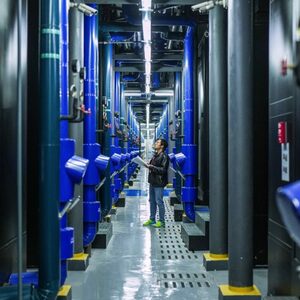

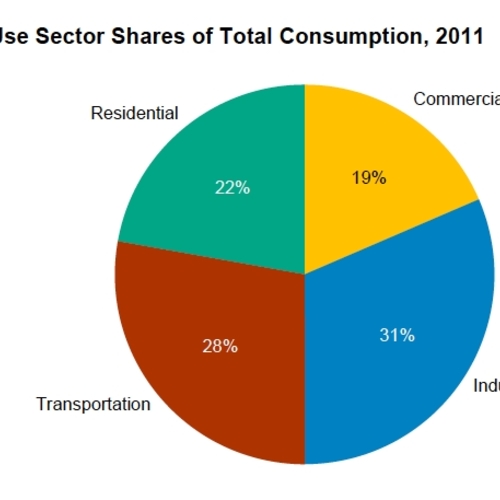
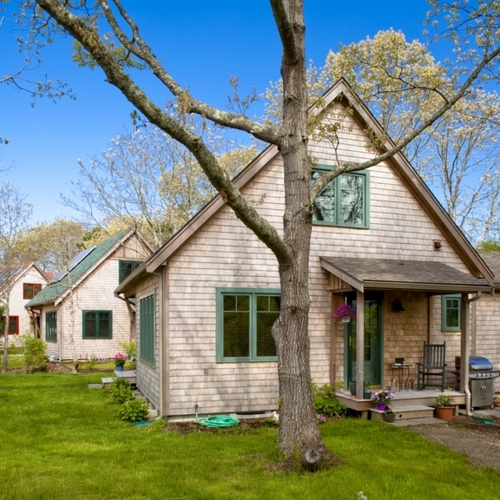


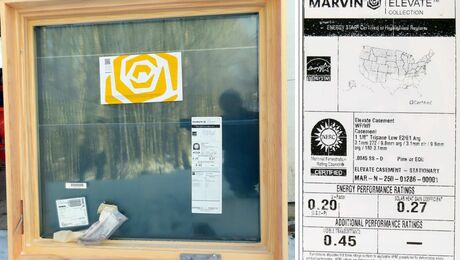



24 Comments
I agree with you Martin.
I
I agree with you Martin.
I really Like Joe Listiburek's new paper
"It's the Energy Stupid"
You got it right
I have been saying the same thing for quite a while - we need to stop worrying about the "green" materials in our buildings until we have made them as efficient as possible. With the exception of some very toxic products, there are very few materials out there that won't fit into a green building IF they are installed properly. More sustainable materials are better, but if you layer them on a building that is inefficient, is not durable, and unhealthy, then you have just put lipstick on a pig - a phrase which I used long before it became famous in the presidential campaign last fall. I have some friends who disagree with me on this, but to hell with them.
Great Tips
I think it's still important to consider green materials while also reflecting on how insulated or small or how energy consuming your building is too. I agree that using green materials is not as efficient if your building is not properly insulated, but it is still a step in the right direction. A company might be more likely to think about the ongoing energy use of a building if they had started using green building materials like environmentally friendly paint or different materials for home frames. At my business, (http://ecogpainters.com/) we're big believers in any steps to build a sustainable building. Thanks for sharing!
The elephant in the room
Martin,
I thought from the title of your blog that you were going to finally be the one to say "it" when you said "From an environmental perspective, the most important factor by far is energy use — not energy efficiency, but actual energy consumption.", But you fell just short of saying "it".
So I guess I'll have to say "it". WE as individuals are the most important factor in the energy use of our homes. Energy (an resource)efficiency comes from our understanding of how we are using (wasting) these resources. Letting the car idle as we run into the store (and while soilders are dying for that resource), not tuning our heating systems on an annual basis, not knowing enough about our water heater to turn it down to a reasinable temperature, leaving our computers, lights and other appliances on all day when not being used.
WE are the elephant in the room that no one is talking about - our individual responsibility to our planet, our neighbors and the world we leave to our childern. We cannot as a society continue to or allow these wastefull and gluttenous ways to continue.
Sorry for the rant - but I think we can build energy efficient houses and and commercial buildings but, without us taking up personal responsibility for our energy consumption these efforts will be for not.
Sincerely,
Jay Walsh
Center for Ecological Technology
Energy Star and LEED-H Rater
I couldn't agree more
Jay,
Thanks for your comments. Of course, you're right. Behavior trumps technology — we are the elephant in the room.
On the same topic...
An interesting blog on the same topic:
http://www.27east.com/story_detail.cfm?id=199824
I'm in complete agreement on this too
(A little late to the discussion here) I completely agree that energy efficiency is our most critical issue right now.
But I don't agree that behavior trumps technology - as I posted here technology (and policy) are going to accomplish more than any of us taking shorter showers or turning off the lights.
Energy efficiency
One of the most important areas is the overall building envelope. By tightening this up and minimizing air infiltration you can control your air changes and even route them through a heat exchanger to capture any heat lost through ventilation in the winter or to cool incoming air in the summer.Increasing the amount of insulation is an easy way to improve your energy efficiency. It’s not enough to simply build to code. By increasing energy efficiency by at least 15% beyond what is recommended by the IRC you receive the Energy Star designation from the Federal government. There are also many rebates and tax credits available through this program.
I couldn't disagree more...
Energy use might be the most important aspect of energy efficient building, but it is only one of 45 different reasons why a home can be considered green. Ask the parents of an autistic child whether they want their home free of toxic, dangerous materials or energy efficient.
I'm not saying that one "Degree of Green" is more or less important than the others. Each consumer has his/her own opinion of this. But, we should not promote our own pet initiatives as the most important or the best. They are all important to some degree.
Important Aspect is the Human Factor in Green Buidlings
I disaggree with the statement "Energy Use Is the MOST Important Aspect of Green Building". As several people mention above, there are many aspects to a Green Building and we need to improve on all these aspects. I'm a facilities manager and we have reduced energy consumption with both technology and behavior. The OTHER MOST IMPORTANT ASPECT OF A GREEN BUILDING IS THE PEOPLE! Every buidling has people working or living in it. In a commerical building, people are the largest expense! Saving energy AND enhancing the human experience in a building are the most important aspects of a Green Building. If the people in a Green Building are not happy or productive, people will not continue to construct Green Buildings.
I agree, its all about how
I agree, its all about how you design and the design techniques that are utlized within to develop an good construction methodology.
There is no definition of "green"
Andrew and Greg,
You both seem to disagree strongly about my statement on energy efficiency. Fine — so what's your definition of green?
If your definition of a green building means fulfilling a checklist for some type of certification, you may both be right. Bamboo flooring — check; high level of ventilation — check; plenty of daylighting — check; native plant landscaping — check.
Greg, you are certainly right than an architect needs to make a building that is people-pleasing. But that's true of any building! A green building is supposed to have other characteristics from typical buildings. According to my definition of green, it must have a low environmental impact.
If environmental impact matters, then everything other than energy efficiency fades into the background.
energy consumption
If you want to conserve Energy, DON"T USE IT. I agree that there are many factors that need to be improved in order to build an effective green building structure. As i'm sure its understood that all of the technology in the world can't imrove unless the education and the resources become readily available. If only a few people are working on the problem, then there is progress. I believe that the construction methods are extremely important in energy consumption but the Human factor plays a much bigger role in this than anything. Like my father always says, " shut of the dang speakers when you're done with the computer"
new homes & nega watt vs. mega watt
An aspect of the health of our economy is judged by new housing starts.This encourages homes that don't last, as well as doesn't encourage the renovation & energy retrofitting of existing. I think it is a false judge of the health of the economy. How do we get this changed?
A friend who recently retired from PG&E as a director of energy conservation says " a nega watt is more valuable than a mega watt." What he means by that is energy saved is immediate, whereas energy produced-even by solar panels-has a greater carbon footprint and takes more time. The production, sales, installation,etc. of solar electric panels has a carbon footprint.
My friend is Wm. "Bill" Zoeller, and is now working as a private consultant for large and small energy conservation projects.
New high efficiency home versus tightening up old home....
I have worked for years on an old craftsman style home built in 1900. First it was replace old wiring and then old supply plumbing. Soon after a new furnace. Now it needs the empty exterior stud walls filled with poured foam. Once the foam is poured it is too late to run wiring in those walls.
At this point I think I could have come out a head building from scratch cost wise and had a much more efficient home. There is just an endless variety of things to do in bring an old home up to the same specs as a super insulated home. After all, if the home is not super insulated, it certainly is not a very green home. The obvious goal in this country is to bring all dwellings up to super insulated specs. Then all this talk about turning out the lights will make some sense.
Response to Stephen Douglas
Stephen,
You're referring to that durable myth -- that "remodeling is less expensive than new construction." As you have learned, in many cases it isn't.
I agree.... almost.
Although I could not agree more that energy use whithin the structure dwarfs the embodied energy in the stucture and its construction, the best approach is not to ignore product selection on the basis of the product's embodied energy, but to make that selection after energy efficiency and durability issues have been addressed. In other words, don't spec the bamboo flooring after eliminating the rigid foam sheathing. There are still "upstream" benefits to materials with a low embodied energy, just not the huge benefits realized "downstream" from products with exemplary energy-saving attributes. Thanks Martin.
New vs remodeling
My sense is that most gut/rehab renovation can easily be more expensive than building new. With a project of a certain scope, when you add to the renovation the degree of effort to get meaningful energy performance integrated well with the building envelope, I see a strong argument for tearing it down and starting over.
Green Building renamed to Common Sense Building
I want to submit that we change the term "Green Building" to common sense building. As I read all of the agruments for promoting building methods and technology that improve all aspects of a building, be it commercial or residential, one thing stands out. The use of common sense methods to improve energy efficiency, indoor air quality, water conservation and materials conservation are nothing more that using your noodle. The problem seems to be that you need educate to create the incentive and the ability to build sustainably. ( Sorry for using that word, Martin)
Let me part with one story, I was at the IBS Show in Las Vegas last year speaking to a man from Finland who creates pressure treated wood without chemicals. I asked him how long he has been using this method and his reply, "Oh, about 80 years." And is this part of your Green Building methodolgy in Finland? His answer, " Green building, what is that, in Finland we just call it building." That is the point we need to reach where we no longer need to call it green anything, we just call it building because it becomes standard to use best practices and common sense in building. wsjenterprises.wordpress.com
home energy use vs transportation efficiency
I think Alex Wilson in Green Building Advisor demonstrated that transportation energy intensity trumps building energy efficiency by about 2.4 times. Where you build is a lot more important than what you build. https://www.greenbuildingadvisor.com/blogs/dept/energy-solutions/transportation-energy-intensity-buildings
I just wrote the other day that a real green building standard should take into account the Energy Efficiency + Building Area + (Embodied Energy / Durability) + Transportation Efficiency. http://www.treehugger.com/files/2010/08/minus-oil-how-should-we-measure-green-building.php
Dangerously simplistic
I agree that reducing building and personal energy use is absolutely imperative, but I do not think you should give readers the impression that energy efficiency should be achieved at any cost. To say that off-gassing and renewable resources are irrelevant is shockingly irresponsible. If the point is to urge people not to trade energy efficiency for other sustainable building practices, then just say that. Encourage designers and builders to take such measures in *addition* reducing energy use.
Let's say this article makes it onto a NARI or NAHB listserv. Then hundreds contractors start filling empty rafter and stud bays in old houses with spray foam, and pat themselves on the back for doing a fantastic job of insulating and air sealing -- which they have. At the same time, they may have released more green houses gases than their new envelope will ever save in emissions. A few years -- or even months -- from now, the house's 70-year old siding might start to rot or warp. The old lead or oil paint could start flaking or peeling into the vegetable garden. The homeowner's family might start getting more colds per year or even develop asthma. The range hood or dryer could start sucking CO down the water heater flue. Meanwhile, unaware that their insulation is killing their family, destroying their house, off-gassing GHGs, AND already starting to crack or pull away from the framing, the homeowner is referring their friends and neighbors to the contractor because their energy bills were cut in half and they think they've done their part to fight global warming.
Is that really "green?"
Next, if the burning of fossil fuels is at the heart of this discussion, then shouldn't we be focusing on energy generation as well as energy use? If greenness is measured by fossil fuel consumption, then one could put a massive solar array and couple wind turbines on their roof and end up with a "greener" house than someone who reduces their energy consumption. I would never recommend pursuing renewable energy without first optimizing energy consumption, but this approach demonstrates the follies of oversimplifying what it means to be "green."
Further, the article begins with the premise that many green building concepts are irrelevant in new construction, and ends with commentary on how new construction is not sustainable due to land use concerns. The latter seems like a non sequitur to me, though I do somewhat agree* with it.
I'm getting a bit of a rant vibe from Mr. Holladay. Perhaps this article would have benefited from a second set of eyes before publishing.
* Though off-topic IMO, I'd argue that developing a mixed-use urban infill condo building would be more sustainable than having 200 new residents buy foreclosed houses in the exurbs just because the mayor is on an anti-development kick.
Response to Mark Foster
Mark,
When it comes to measuring a home's impact on the environment, energy use overwhelms all other factors. If builders and homeowners care about reducing their environmental impact, then their number-one concern should be finding ways to reduce energy use.
Of course I believe that insulation should be installed correctly. I never recommended installing insulation in such a way that it causes moisture problems leading to siding failure.
I'm also a strong believer in the need to provide mechanical ventilation to assure decent indoor air quality, as regular readers of GBA know. For example, see my blog, Designing a Good Ventilation System.
However, it's worth pointing out that builders provide a mechanical ventilation system for the same reasons that they provide a furnace: because it is required by code (in many regions of the country) and in order to keep the occupants comfortable and safe. Neither a mechanical ventilation system nor a furnace does anything to reduce a home's environmental impact. When it comes to reducing environmental impact, the most important thing you can do is find a way to reduce energy use.
That doesn't mean that you should ignore IAQ. It just means that IAQ is irrelevant to the environmental impact of the home.
Dangerous nonetheless
Yes, regular readers of GBA are the choir in this proverbial church; however, most homeowners and builders are drinking from a firehose of green building information and may not have the time or opportunity to fully consider the consequence or the most appropriate means of reducing energy use. In this world of soundbites and slogans, unqualified adjectives like "most important" and "irrelevant" are convenient to quote out of context, leading to all sorts of interpretations. Just as I don't know what Stephen Thwaites has or hasn't written in his blog, many readers of this article -- or excerpts from it -- won't know what you have written in yours.
When the first two paragraphs of your article are quoted out of the context of the rest of your writings, people will get the impression that GBA's position is now that renewable materials, IEQ, and stormwater management practices are a waste of time and money. They will be relieved to have a free pass to ignore all the expensive "green" alternatives to the "conventional" products they know and love. Builders will delight in telling homeowners that their agriboard and dual-flush toilets are irrelevant. "Finally," they will say, "the green building fad is fading. Now we can get back to building the easy way. We just need to throw in some more insulation and Energy Star appliances."
I'm not disagreeing with the relative impact to the environment of various aspects of sustainable building. I just feel we can't make dramatic statements that can easily lead to catastrophic or lethal actions without explaining ourselves a little better. While a bold headline is great for grabbing attention, something in the article should indicate that it would be irresponsible to completely ignore all other aspects of "green" building.
Second response to Mark Foster
Mark,
Thanks for your comments. However, I certainly hope that irresponsible readers don't choose to quote my words out of context.
It's hard to defend myself against charges that some readers may "get the impression" that I wrote words that I did not write or advocated positions that I am not advocating. All I can do is defend the words that I actually wrote.
Log in or become a member to post a comment.
Sign up Log in